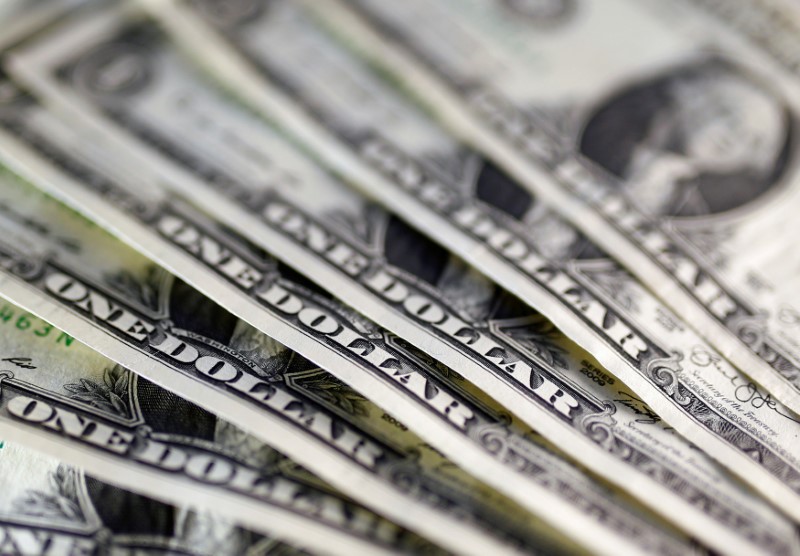Investing.com - The dollar ended little changed against the yen and the other major currencies on Friday after U.S. President Donald Trump and Japanese Prime Minister Shinzo Abe delivered a joint statement discussing their trade relationship.
USD/JPY was at 113.19 late Friday, after having risen to nine-day highs of 113.85 earlier.
At a joint news conference with Japan’s prime minister, Trump avoided repeating accusations that Tokyo uses monetary policy to devalue its currency to the disadvantage of the U.S. and takes advantage of U.S. security aid.
The U.S. dollar index, which measures the greenback’s strength against a trade-weighted basket of six major currencies, was at 100.71 not far from the eleven-day highs of 101.02 set earlier Friday.
The index ended the week with gains of 0.95%, the largest weekly percentage gain since mid-December after remarks from Trump indicted that his administration would soon reform tax policy.
Trump said Thursday he would be announcing something over the next two or three weeks that would be “phenomenal” in terms of tax.
The euro was lower against the dollar late Friday, with EUR/USD sliding 0.18% to 1.0640, not far from a three-week trough of 1.0608 set ahead of the Trump-Abe press conference.
Sterling was little changed, with GBP/USD at 1.2490.
The Canadian dollar strengthened against the greenback on Friday, with USD/CAD down 0.46% at 1.3084 following the release of upbeat Canadian employment data.
Canada’s economy added 48,300 jobs in January official data showed, boosting chances for a ret hike before the end of the year.
In the U.S., data on Friday showed that consumer sentiment eased back from 13-year highs this month, but remained solid in the wake of Trump’s election win.
The University of Michigan said its index of consumer sentiment fell to 95.7 from a reading of 98.5 in January, which was the highest since January 2004.
In the week ahead, the U.S., the UK and China are to release what will be closely watched data on inflation. Meanwhile, Federal Reserve Chair Janet Yellen is due to testify to Congress for the first time since Donald Trump entered the White House.
Ahead of the coming week, Investing.com has compiled a list of these and other significant events likely to affect the markets.
Monday, February 13
Japan is to publish preliminary data on fourth quarter economic growth.
Tuesday, February 14
China is to release data on consumer and producer price inflation.
Germany is to put out a preliminary estimate of fourth quarter growth, while the euro zone is to release a revised estimate of fourth quarter growth.
The ZEW Institute is to report on German economic sentiment.
The U.K. is to publish data on consumer price inflation.
The U.S. is to release data on producer price inflation.
Fed Chair Janet Yellen is due to appear before the Senate Banking Committee, in Washington to testify on the bank’s latest monetary policy report.
Separately, Dallas Fed President Robert Kaplan is to speak at an event in Houston.
Wednesday, February 15
The U.K. is to publish its latest employment report.
The U.S. is to release a raft of economic data, including reports on inflation, retail sales, industrial production and manufacturing activity in the New York region.
Fed Chair Janet Yellen is due to testify on the bank’s latest monetary policy report to the House Banking Committee, in Washington.
Thursday, February 16
Australia is to publish its latest jobs report.
The European Central Bank is to publish the minutes of its latest meeting.
The U.S. is to publish reports on building permits, housing starts, jobless claims and manufacturing activity in the Philadelphia region.
Friday, February 17
New Zealand is to publish a report on retail sales.
The U.K. is also to report on retail sales.
Canada is to round up the week with figures on foreign securities purchases.
